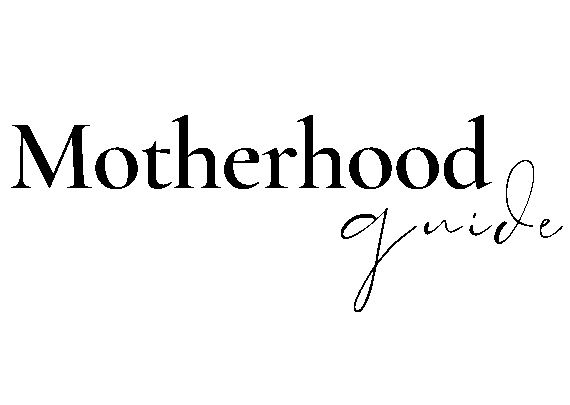Imposter syndrome is a phenomenon many face when they step back into the workforce, take on leadership roles, or start their own businesses. It’s that annoying feeling that, despite your achievements, you don’t truly belong in the room, and that sooner or later, others will “figure you out.” This psychological pattern of self-doubt can be very overwhelming for those returning after a gap, as the pressure to prove oneself can be suffocating.
Research from the Journal of Applied Psychology reveals that women are more likely to experience imposter syndrome than men, particularly in high-achieving or leadership roles. Women, particularly those who’ve been out of the workforce for a while, are often conditioned to feel that they must do more to prove their worth. We’ve been told for years that we have to work twice as hard to achieve half as much, and this creates a belief that we’re never quite enough.
This is often due to the double bind of societal expectations, women are expected to be nurturing and supportive, yet also assertive and ambitious, which creates a conflict in how we perceive our worth. As a motherhood coach, I’ve know what a downer this feeling is and how it can hold us back from fully owning our success.
When Your Achievements Don’t Feel Like Enough
In my second year at university (almost 20 years ago), I was asked to help my friend with his master’s thesis. As it turned out, ‘help’ in his language meant more than in mine. Although I thought it was far beyond my capabilities, he received a good grade, and I…? Hypothetically speaking, I may have ‘helped’ dozens of students graduate with their bachelor’s and a couple of master’s in various disciplines, from medicine to engineering.
In my early 30s, as a business development advisor, I helped countless businesses secure funding for their ideas, attracting over EUR 4 million in investment in less than four years, and most importantly – believing in their ideas more than they could. In my late 30s, after moving to a new country where I barely spoke English, I was offered three jobs in less than a month. On my first month in my new position, I proposed a business concept that ultimately reshaped the entire company. Success followed me. My life was built on helping others succeed.
And yet, when I decided to start my coaching sessions for moms, I felt like a fraud. My educational background in psychology wasn’t enough, my life experience wasn’t enough, and even my friends, whom I had coached for years, telling me that I should start helping more women, didn’t make it feel right. Not even my recent studies at Stanford felt like enough to make it public.
To own it, to announce it, and, God forbid, to take money for something I prepared myself for decades, felt like fraud. So I studied more, polished my coaching sessions, tested them repeatedly, built a website, then took it down, built another one… The idea of charging for something that I believed in, something that had been my calling for so long, felt somehow… wrong. Until it hit me: everything I had achieved, all my successes, were built on believing in others and their ideas, but never my own.
Paradox of Supporting Others More Than Yourself: A Common Struggle for Those with Imposter Syndrome
This is the essence of imposter syndrome: the deep-seated belief that, despite all the proof of your accomplishments, that you are not worthy enough. The achievements pile up, the results speak for themselves, but the voice inside you says, You didn’t really do this. Someone else did it for you. You tell yourself that you’ve succeeded through others, by believing in them, by lifting them up. But when it comes time for you to stand tall on your own, you struggle.
Give me a person to motivate, and I’ll help them accomplish great things. But when it was time for me to step into the spotlight, to take my name and face out there, I stumbled.
It took me years to realise that I have an imposter syndrome and that every single success I’ve had, whether in helping others, advising businesses, or launching successful projects, was built on believing in others’ potential more than I believed in my own. Give me a person to motivate, and I’ll help them accomplish great things. But when it was time for me to step into the spotlight, to take my name and face out there, I stumbled.
I had been told for years that I was too young, too naïve, too bold, too unqualified, that I’m a woman. Those messages, have a lasting effect. Women are told in subtle ways that they don’t quite belong in certain rooms, certain spaces, certain opportunities. When you hear this often enough, you take it, and even when your success is undeniable, you find ways to diminish it. You begin to believe that, despite your talents and hard work, you’ve somehow stumbled into success by accident.
Imposter Syndrome: Not a Clinical Diagnosis, But a Common Struggle
Imposter syndrome is not a clinical diagnosis. And I’m not a therapist, to diagnose it even if it would, but it’s something that affects many of us: single mothers who are returning to work after a gap, career oriented women who are taking on new roles like starting a business or moving up the ladder. The research supports this, showing that women are far more likely to experience imposter syndrome than men—especially in leadership positions. Studies show that women tend to underestimate their abilities and attribute their success to external factors, luck, timing, or other people’s help.
A study from the Journal of Applied Psychology found that imposter syndrome is pervasive, particularly among high-achieving individuals. In fact, 70% of people experience imposter syndrome at some point in their careers. And yet, we rarely talk about it, especially when it comes to women. In a society that’s still working through gender norms, many women feel as they have to prove themselves, time and time again.
Find Your Way Reclaiming Your Confidence
The truth is, there’s no magic moment when imposter syndrome simply disappearing. You won’t wake up one day and suddenly feel completely at ease with your accomplishments. I still catch myself doubting my place in a room, even after all I’ve achieved. But here’s the practical truth: there is a difference between feeling like an imposter and being one. You don’t have to wait for that feeling of certainty to take action, it’s enough to be aware of it.
I’ve learned to manage this discomfort of imposter syndrome by acknowledging it and moving forward anyway. When I take on a new challenge, whether launching my coaching programs or giving a speech, I remind myself that feeling inadequate doesn’t take away my worth. It’s just a feeling-I have. I’m aware of it. I’ve walked this road for a reason. I am not here by accident.
For mothers stepping into new careers, roles, or businesses, it’s essential to know that these feelings are not a reflection of your abilities, they are simply a signal that you are pushing yourself to grow. We are taught to put others’ needs before our own, but the uncomfortable trip back to self-empowerment requires us to look inward. You’ve built your life on your resilience, your ability to adapt, and your immense talent. The world needs that. You need that.
In my sessions with moms, I remind them: You don’t need to be perfect, you just need to be willing. That’s enough. No one has it all figured out, and those who act like they do are likely the most insecure of all. So let go of the need for external validation and trust that your accomplishments, your ideas, and your voice matter—even when you don’t feel like you belong in the room.












